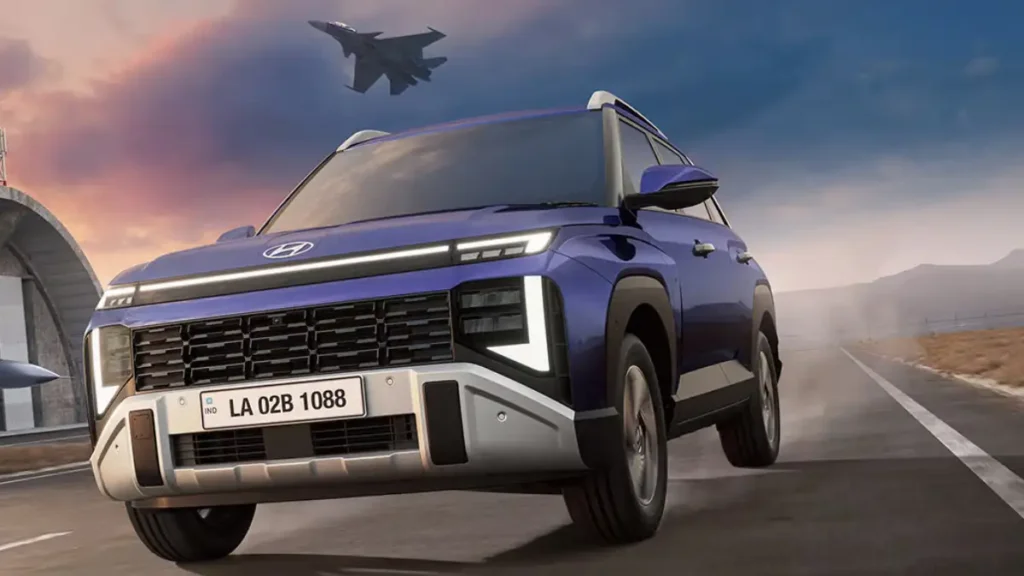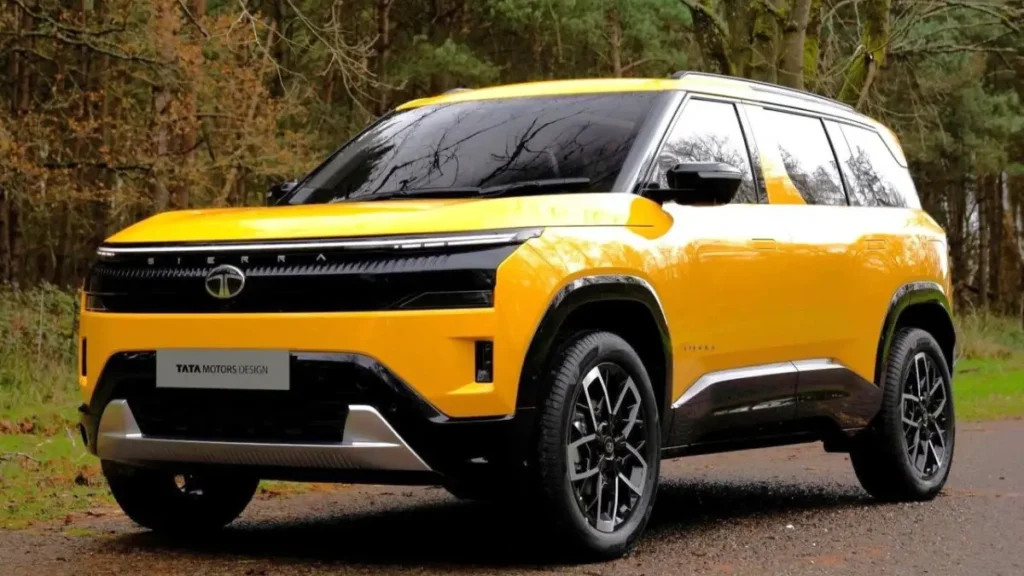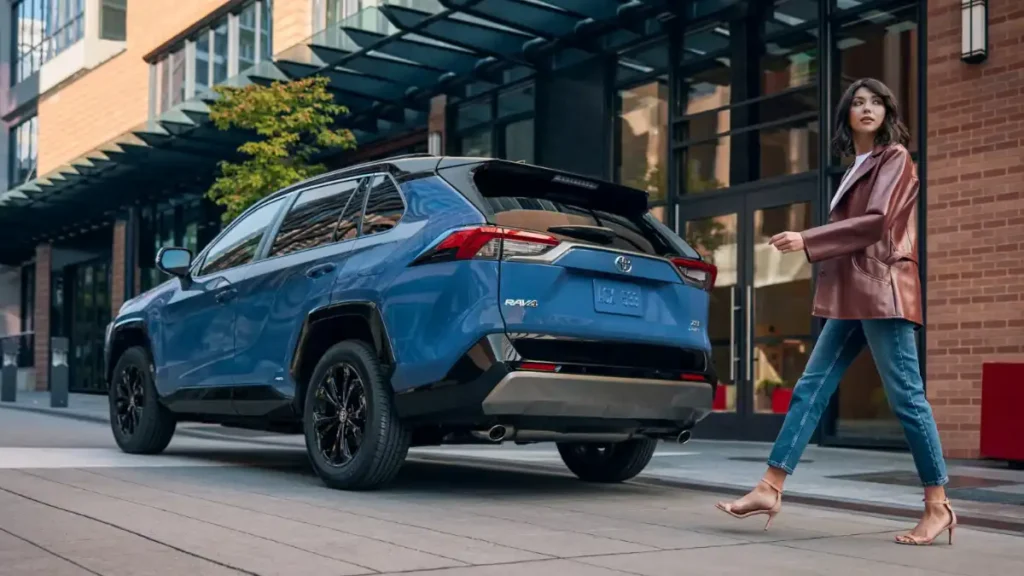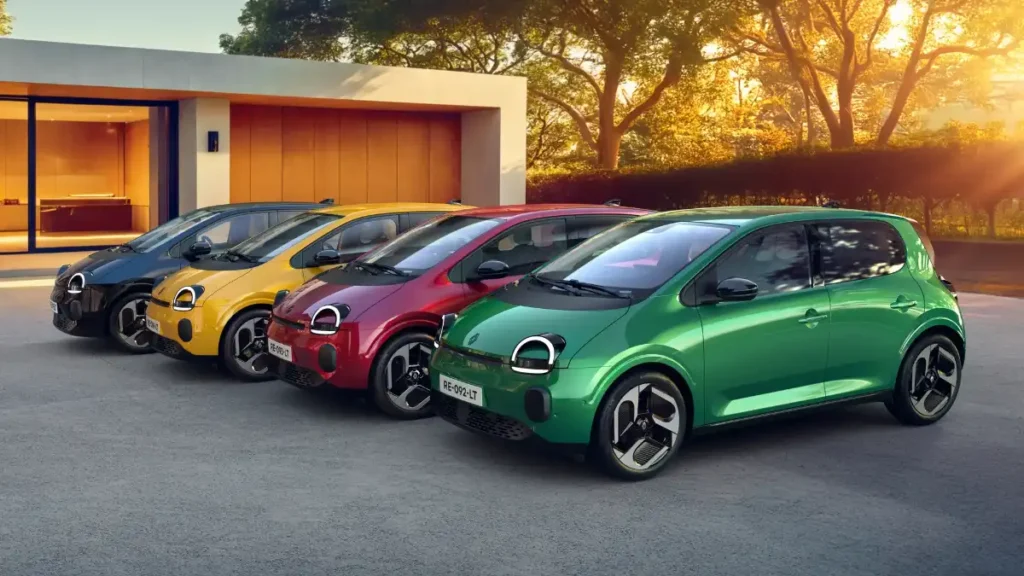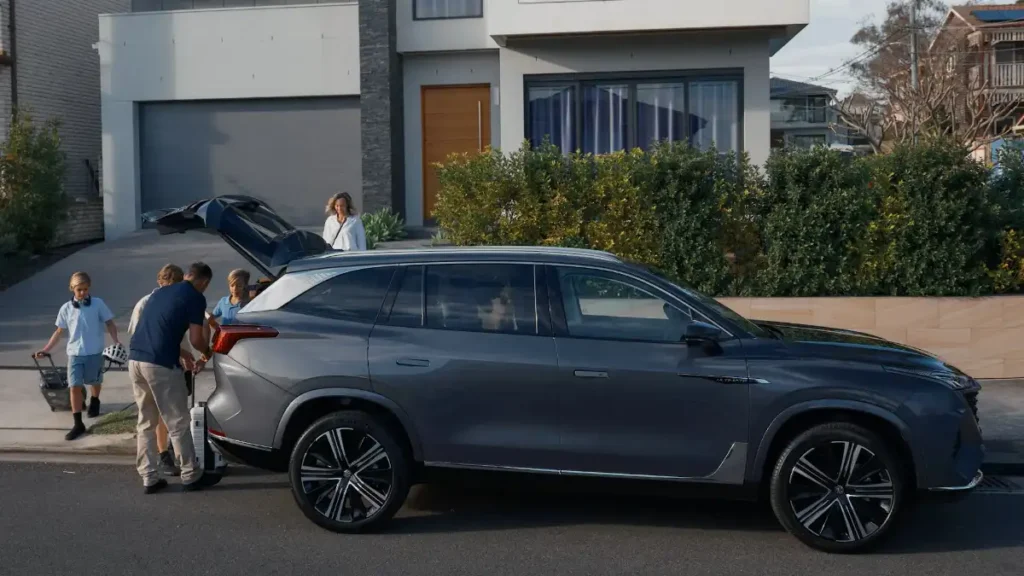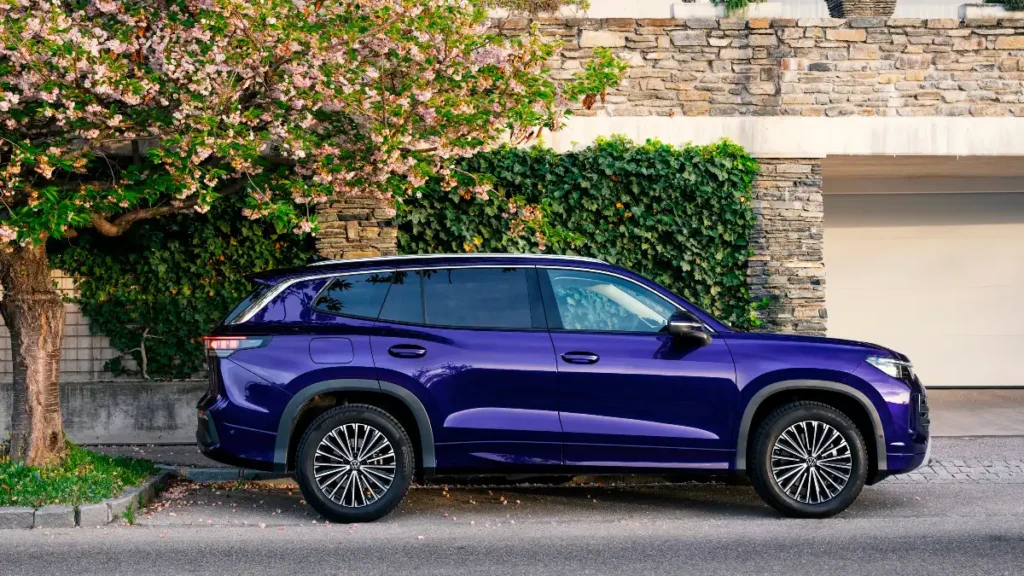
Overview
The Volkswagen Tayron arrives as a standalone, three-row family SUV built in Wolfsburg on the MQB Evo platform. Positioned above the Tiguan in size, it aims squarely at buyers who need seven seats and a mature driving experience rather than hardcore off-road ability. The line-up starts with an entry model and runs up to this R-Line derivative; pricing on our market examples sits around the mid-R-hundreds of thousands (the test car pre-options was shown around R890,000, with a fully-optioned spec climbing toward R987,300).
This review uses only the details from the test car: a front-wheel-drive 1.4-litre turbocharged four-cylinder with a seven-speed DSG, and a configuration oriented toward family practicality and daily comfort.
Under the skin: platform and packaging
Underneath it all the Tayron uses Volkswagen’s MQB Evo architecture — a matured, modular layout that’s been enhanced for electrification and improved electronics integration. That platform gives the Tayron longer overall dimensions than a Tiguan, and that translates to genuinely useful interior space for three rows. The Evo upgrades also allow Volkswagen to fit hybridised powertrains later, although the test car is strictly petrol.
The key takeaway: this is a long, well-packaged three-row SUV that prioritises cabin room and sensible ergonomics over sporty packaging.
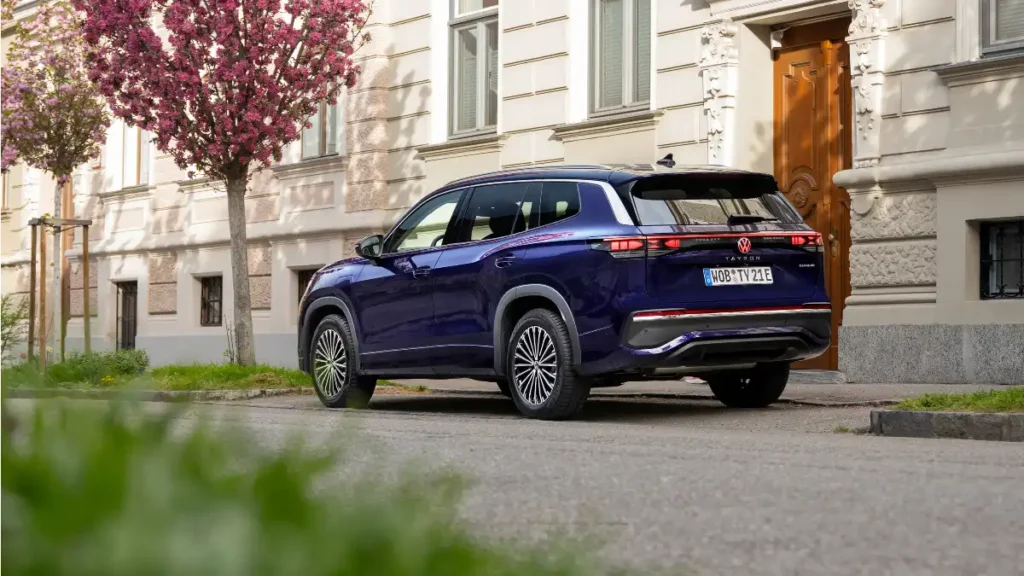
Engines and real-world economy
The test vehicle runs the familiar 1.4-litre turbocharged engine from the VW parts bin — roughly 110 kW and 250 Nm, paired to a seven-speed DSG driving the front wheels. Volkswagen quotes a 0–100 km/h time of 9.2 seconds and an official consumption of 7.6 L/100 km.
In daily use the car felt adequate rather than energetic. It moves the big body competently with two or three people aboard, but if you’re habitually carrying seven passengers, towing, or driving up steep gradients regularly, the 1.4 will be working hard. Over the first 1,000-km life of the test car the logged fuel average was 8.7 L/100 km, trending down toward the mid-sevens with gentle driving. That suggests realistic economy will sit a touch higher than the brochure figure in mixed use.
Volkswagen will expand the range with bigger engines in future (a 2.0-litre unit and mild-hybrid options were mentioned for early 2026), and that will be worth waiting for if you need stronger performance or towing capacity.
Ride, handling and driving feel
For a three-row family SUV the Tayron handles surprisingly well. Thanks to the MQB Evo platform and refined chassis tuning, the car delivers a balanced, composed ride with confident body control. On winding roads the Tayron feels mature: steering is direct enough, weight distribution is sensible and the low centre of gravity helps keep roll in check.
The caveat comes with wheel choice. The R-Line test car’s 20-inch “York” wheels and the black style pack made the ride noticeably firmer — small ruts and surface roughness were transmitted more clearly to the cabin. If you live on poorer roads, the mid-spec wheel option with taller tyres will deliver a calmer, more compliant ride.
Braking performance is strong with disc brakes all around, but low-speed pedal feel can be a little grabby in tight manoeuvres. Overall the Tayron leans toward refined, predictable behaviour rather than sporty aggression.
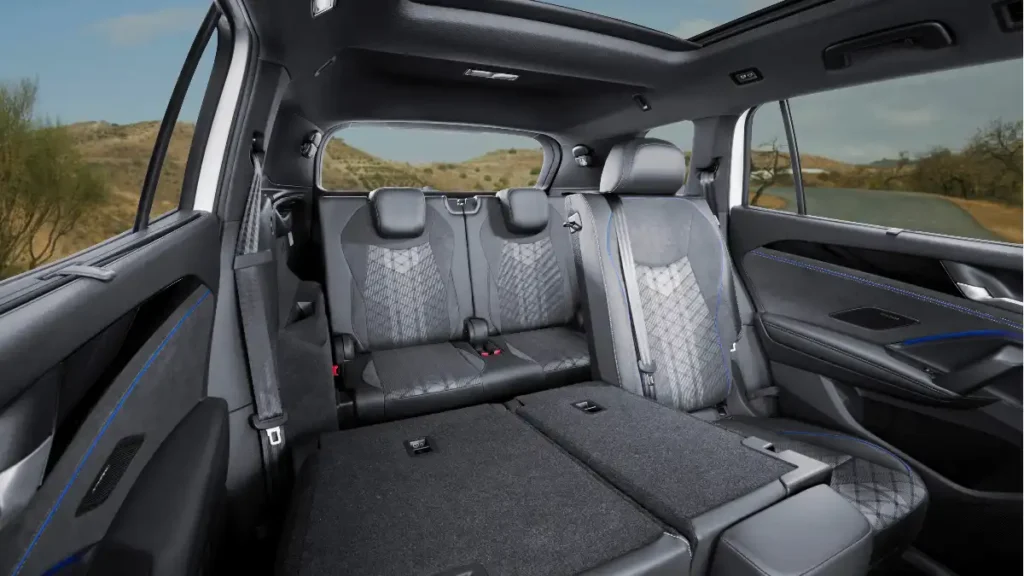
Interior, tech and comfort
Volkswagen has taken a step forward with interior quality compared with recent models. The infotainment system is responsive, graphics are clean, and physical controls have returned in sensible places — a welcome change from over-digitalised cabins. The test car included high-end features such as massage seats and a Harman Kardon audio upgrade, both of which elevate the comfort and luxury feel.
Driver ergonomics are well judged, with a large, clear central display and useful steering-wheel controls. There are some trade-offs in storage — small door bins in places — but overall the fit and finish feel a definite improvement. The Tayron’s heated steering wheel, massage functions and available sunroof options add a premium touch that many families will appreciate.
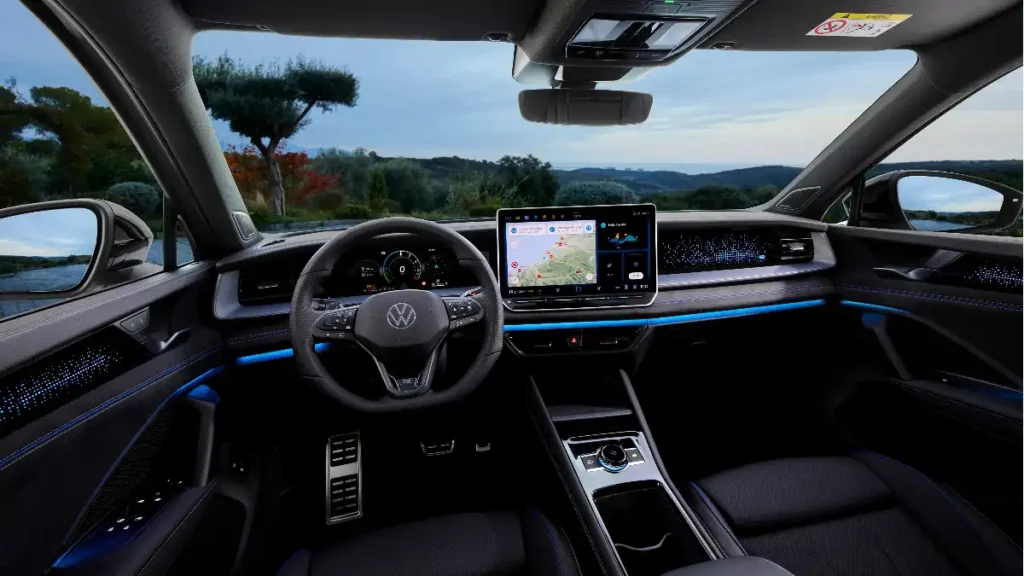
Practicality and third-row usability
Practicality is the Tayron’s core strength. The second row offers flexible seating and the third row deploys for true seven-seat use. That said, third-row space is best suited to children: adult legroom is limited and there are few creature comforts back there — no dedicated USB ports or climate controls in the test unit unless optional packages are selected.
Volkswagen packages extras smartly: options such as the navigation “Discover Pro” upgrade bring rear USB ports and wireless charging to the second row, but they add to the on-the-road cost. The boot configuration with seats folded and a space-saver spare allows genuine family practicality when required, plus handy comforts like a two-pin inverter in the cargo area.
Options, warranty and ownership notes
Warranty in the test market sits at three years / 120,000 km, with a five-year / 90,000 km service plan included. Compared to some rivals that offer longer comprehensive warranties, Tayron’s package is serviceable but not class-leading — extended warranty plans are available for those who want extra cover.
Options can push the price substantially. The black style pack, optional 20-inch wheels, trailer hitch and audio upgrades quickly add tens of thousands to the sticker, and you should pick options carefully — the big wheels, in particular, affect ride comfort.
Verdict
The Volkswagen Tayron is a convincing, grown-up three-row SUV that delivers on space, refinement and everyday usability. It drives better than many would expect for a seven-seater, offers genuinely usable third-row practicality for kids, and presents a strong interior package in higher trims.
Where it stumbles is powertrain choice for heavy use: the standard 1.4-litre turbo is adequate but not ideal for constant seven-person loads or towing. If you need that extra muscle, waiting for the 2026 2.0-litre and mild-hybrid options will be sensible.
Pros
- Mature, refined driving behaviour for a large family SUV
- Thoughtful interior quality and strong feature levels (massage seats, Harman Kardon option)
- Genuine seven-seat practicality and useful cargo packaging
Cons
- Base powertrain feels underworked for fully laden use
- Large 20-inch wheels compromise ride comfort on poor roads
- Warranty and service inclusions are competent but not class-leading
Final word: the Tayron is a refined, family-centric SUV that does most things calmly and well. Buy carefully (choose wheels and options to suit your road conditions) and you’ll have a practical, comfortable seven-seat Volkswagen that’s enjoyable to drive on the school run and composed enough for longer trips.
Pravin is a tech enthusiast and Salesforce developer with deep expertise in AI, mobile gadgets, coding, and automotive technology. At CarzCorner, he shares practical insights and research-driven content on the latest tech and innovations shaping our world.

